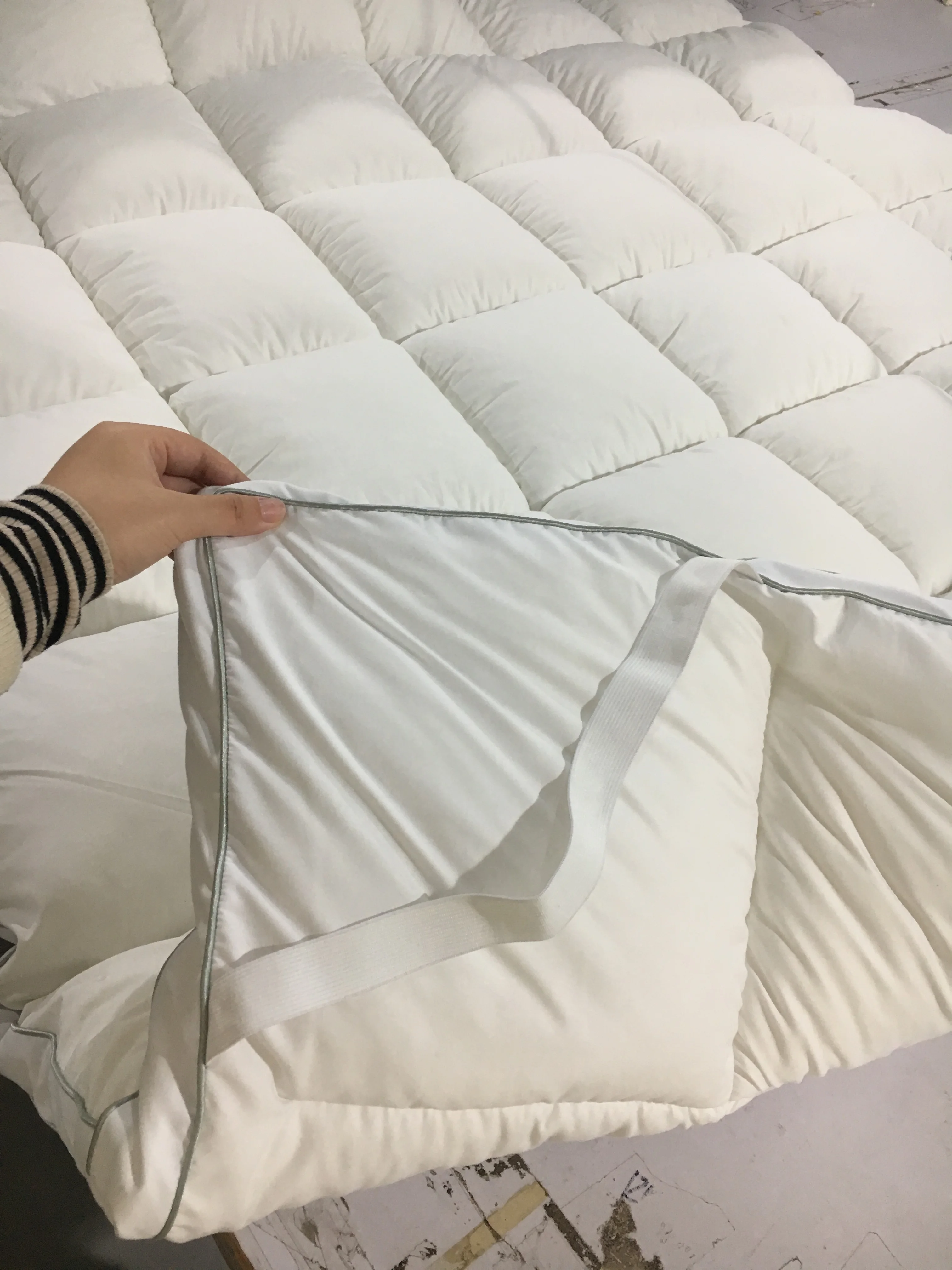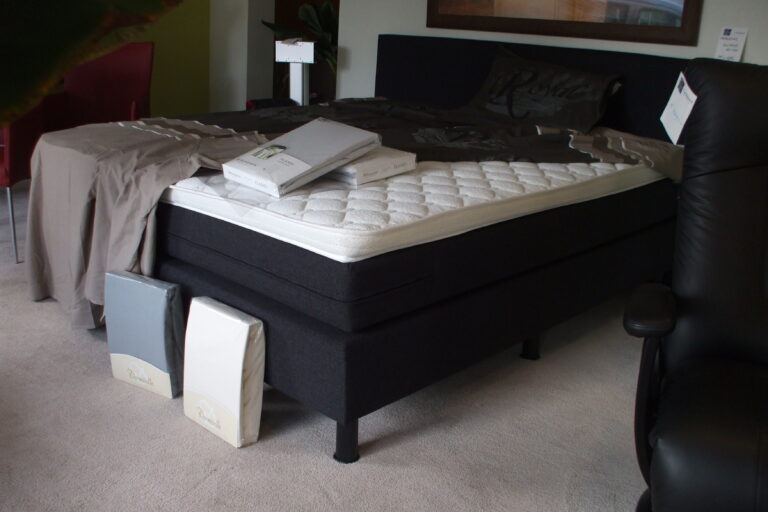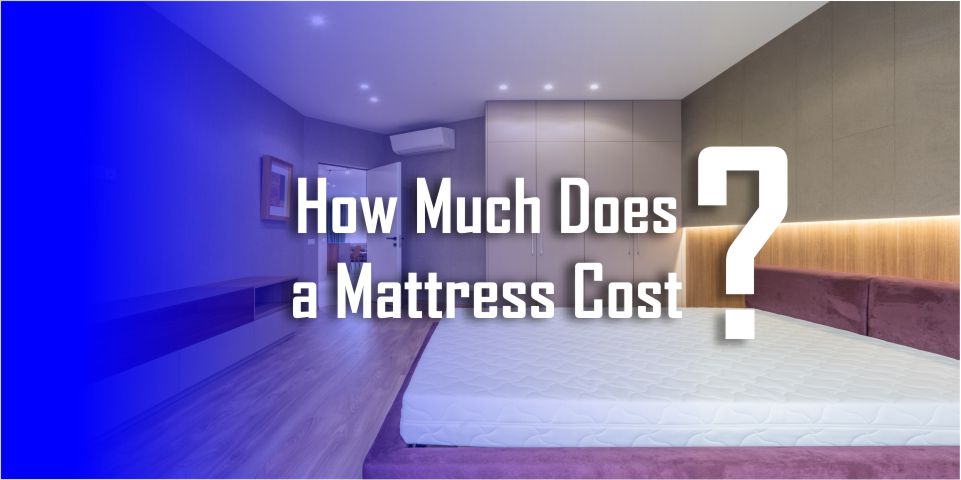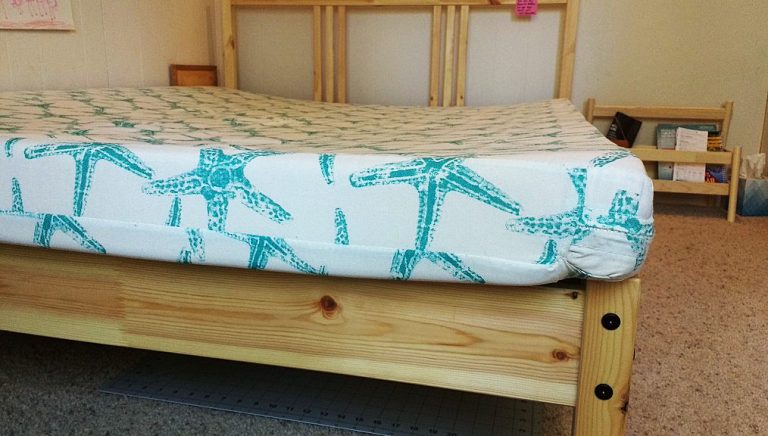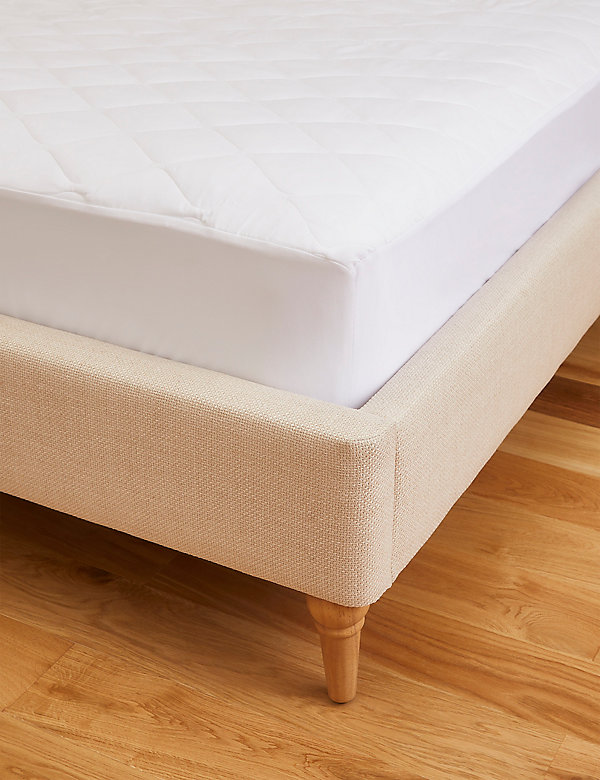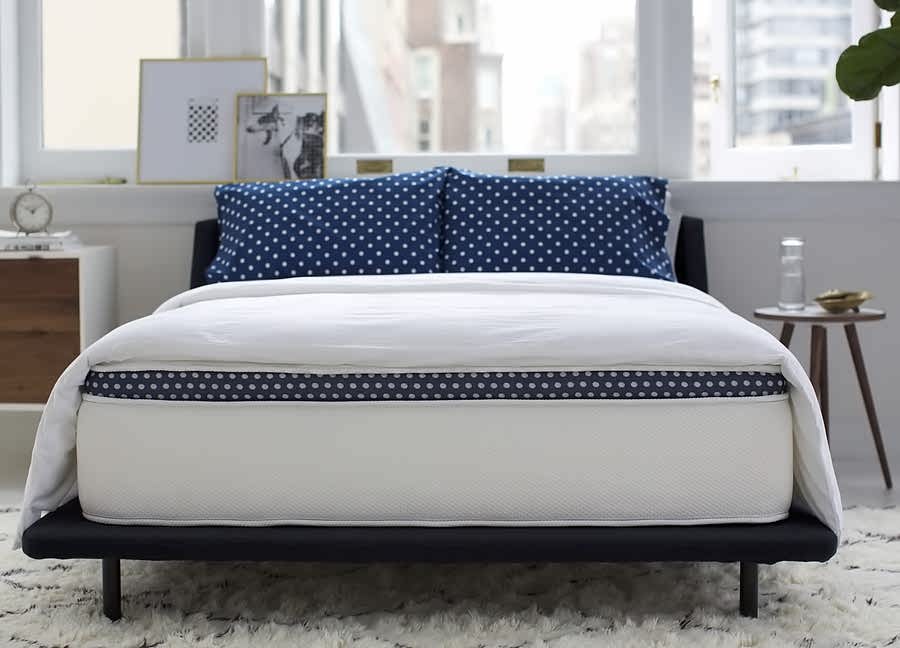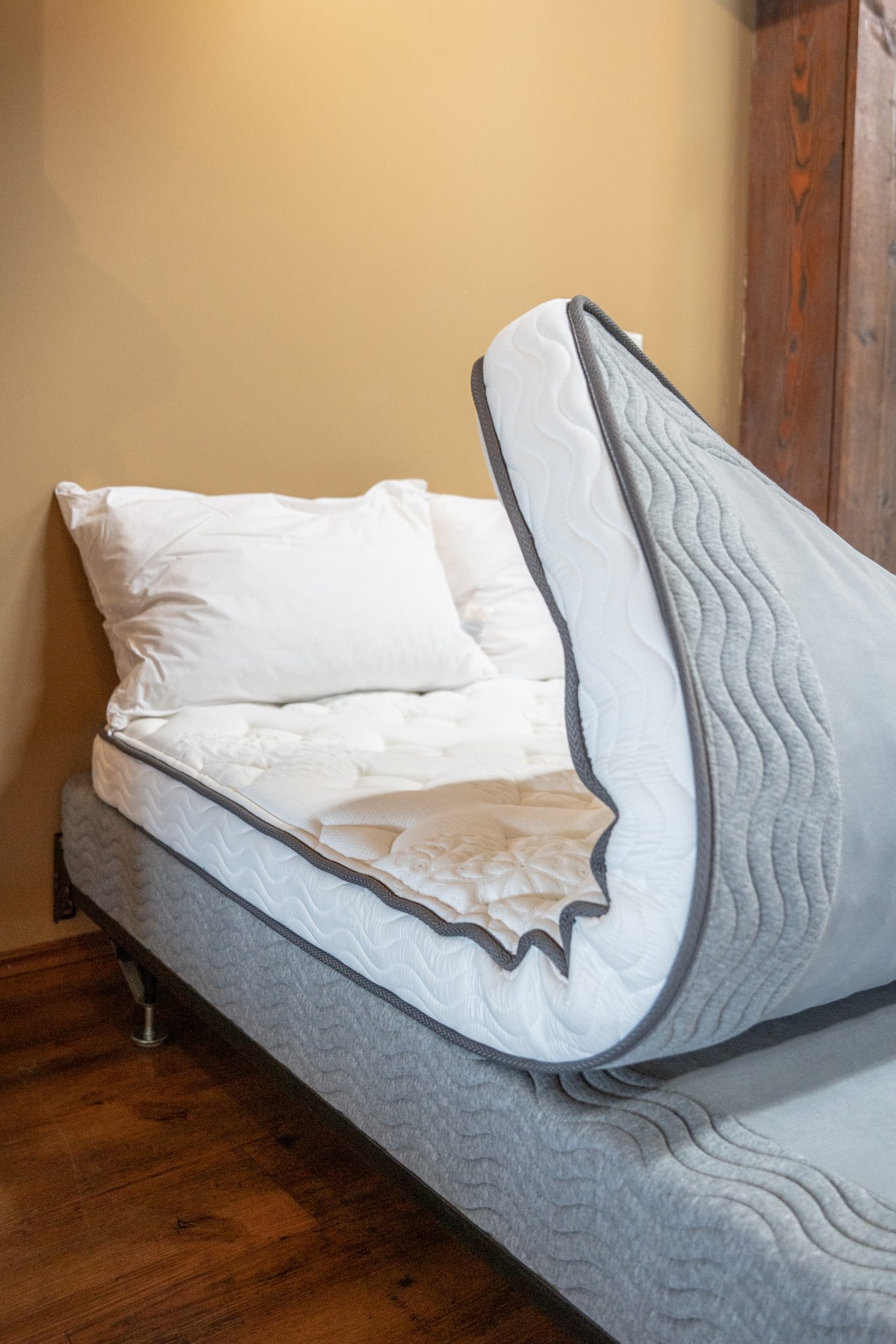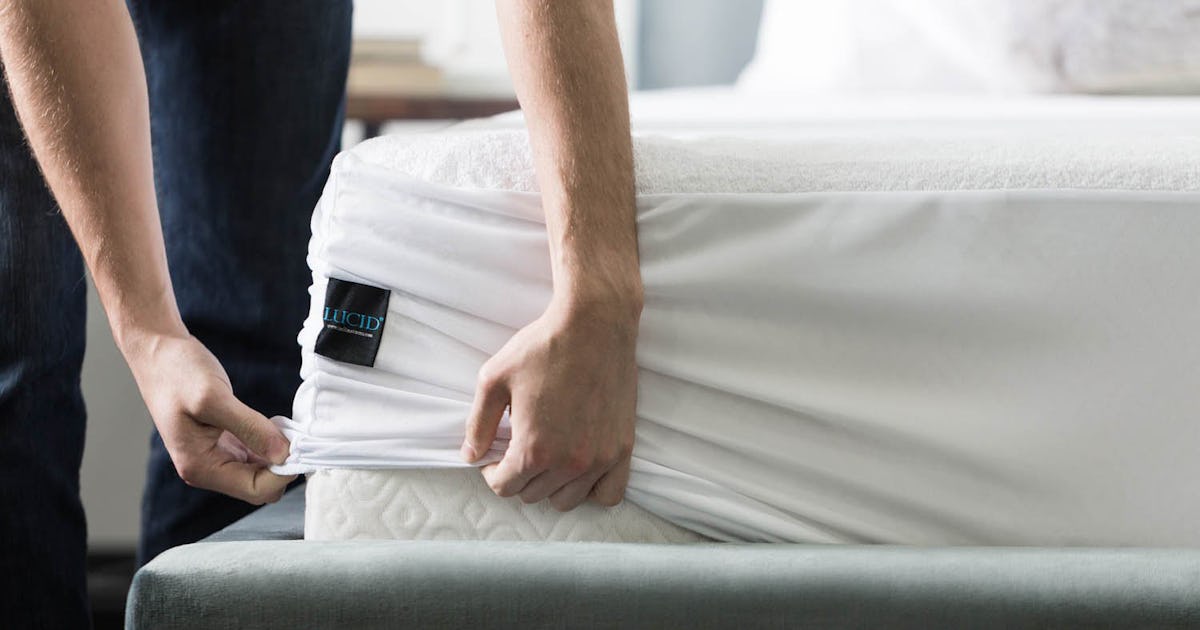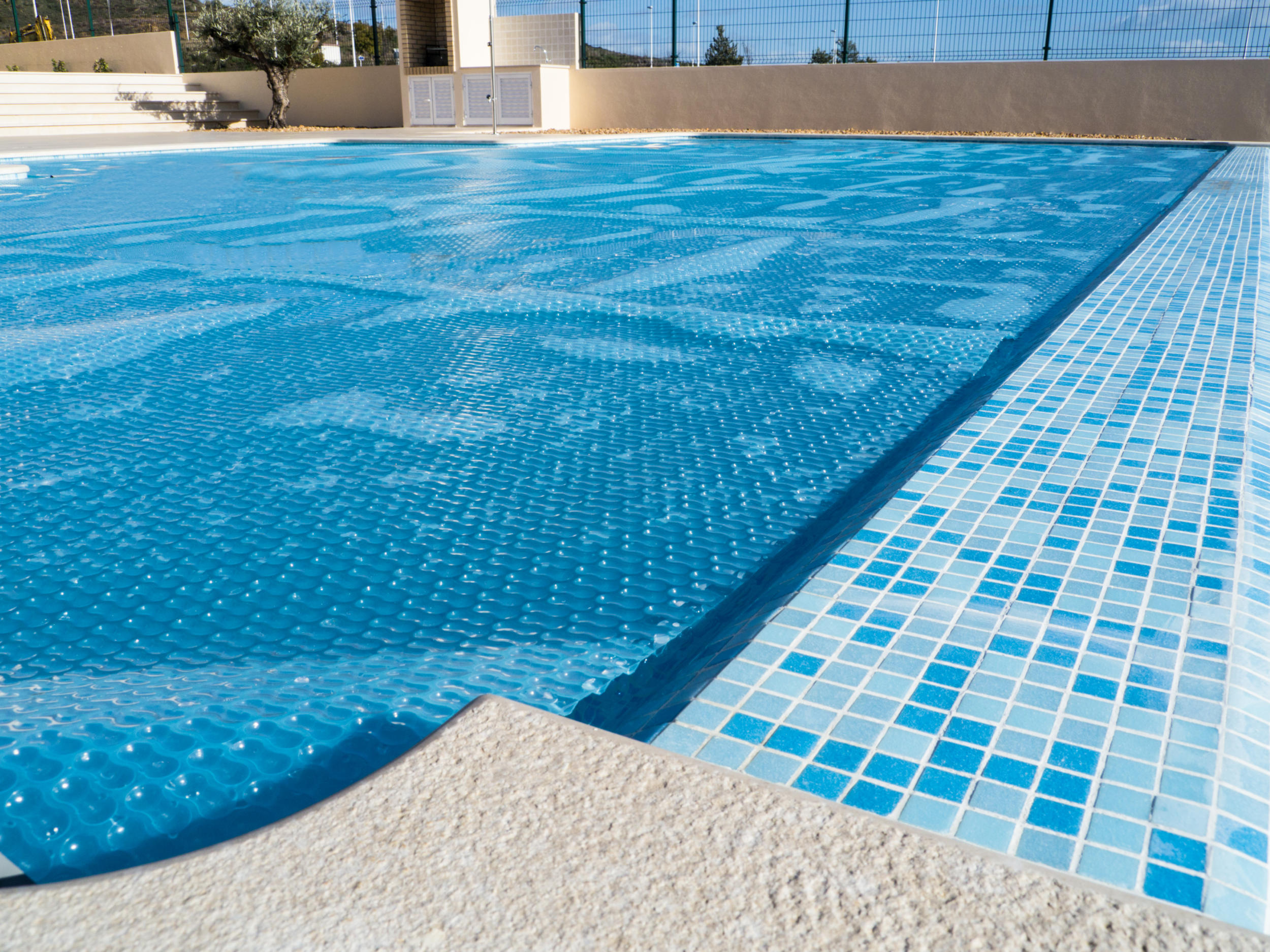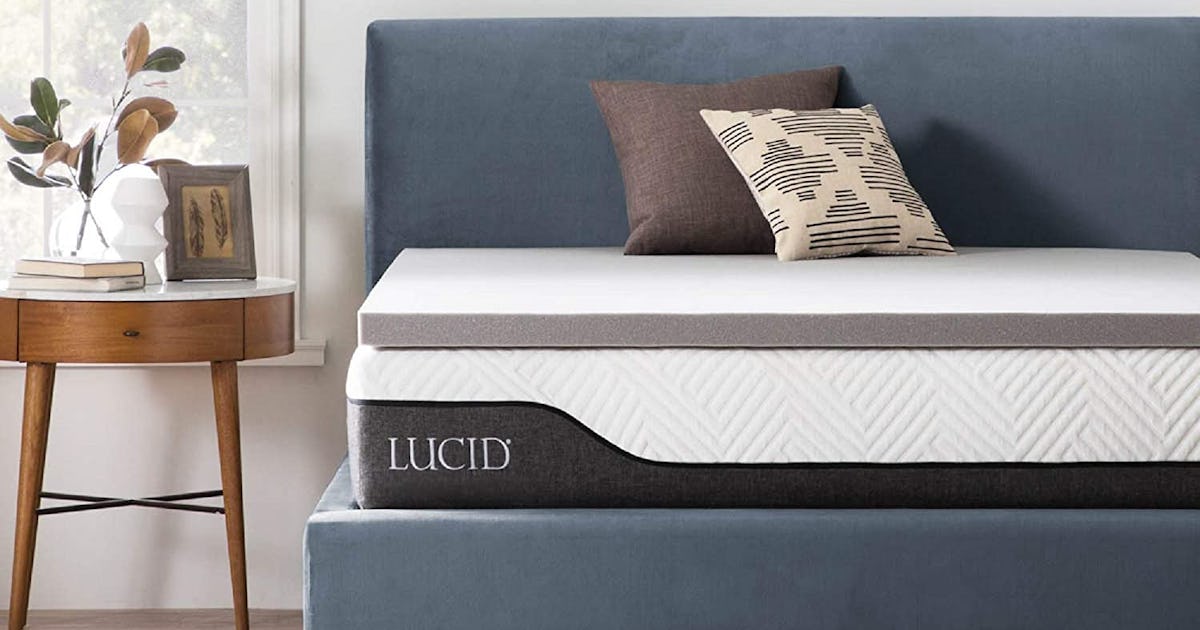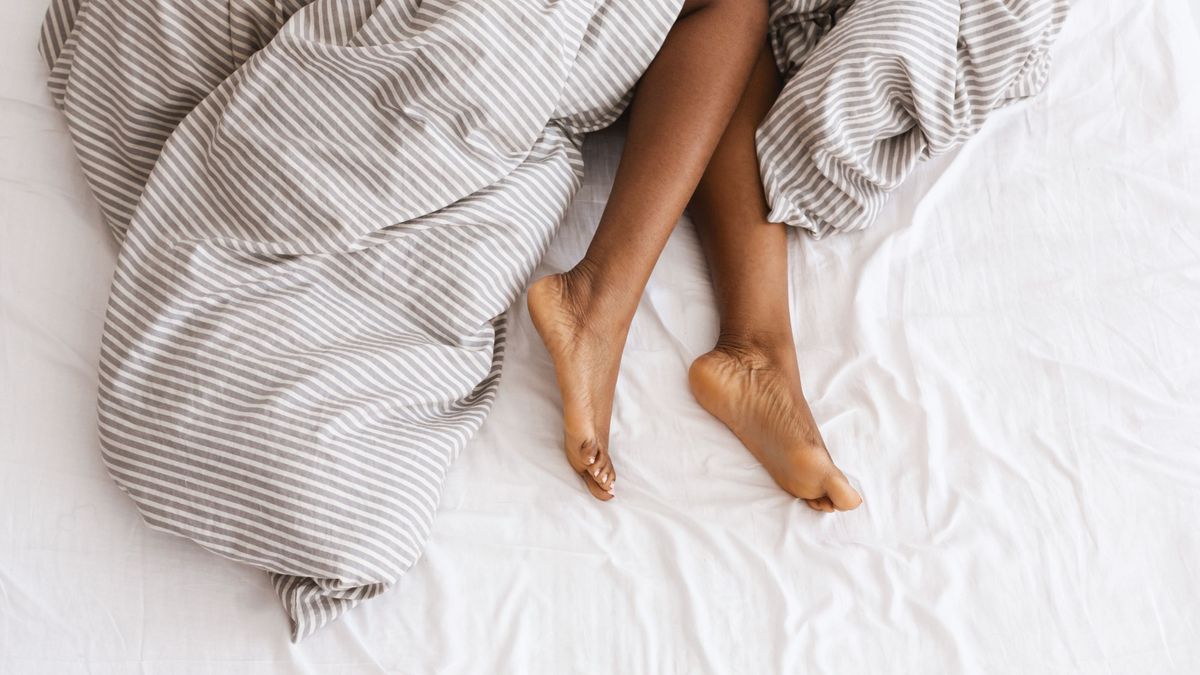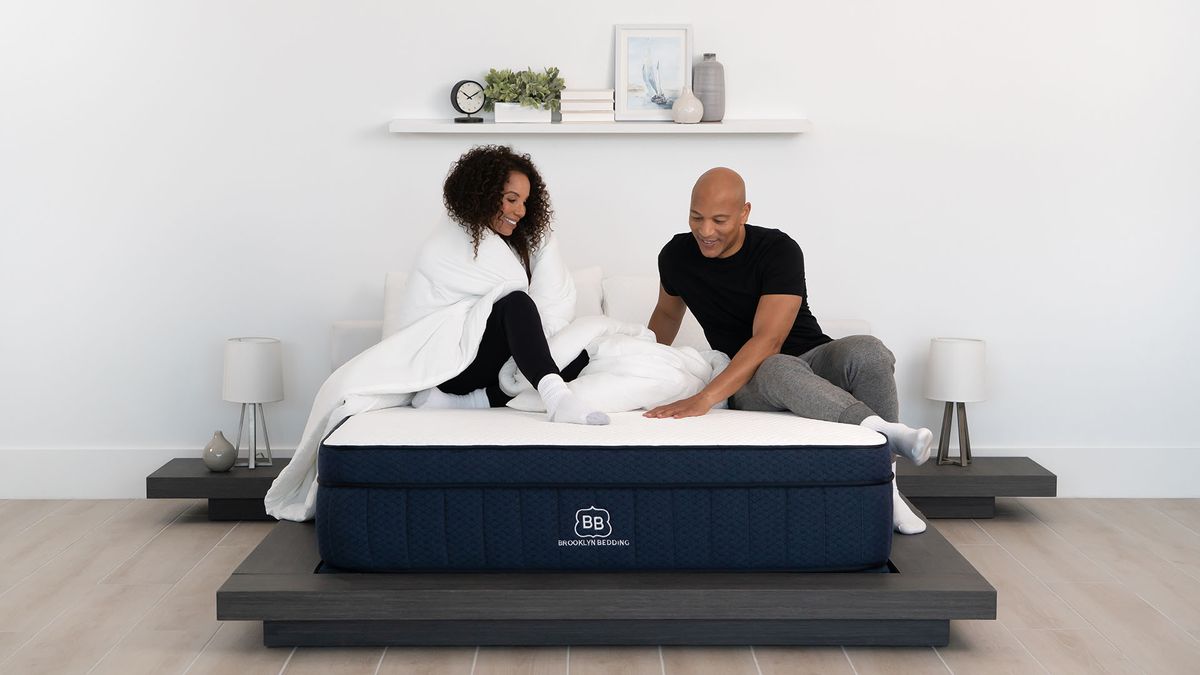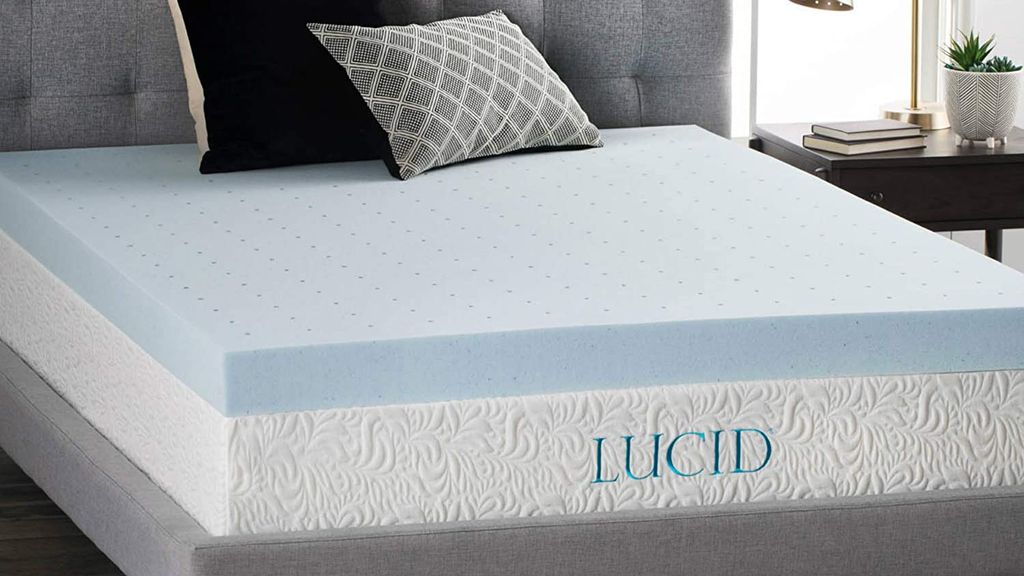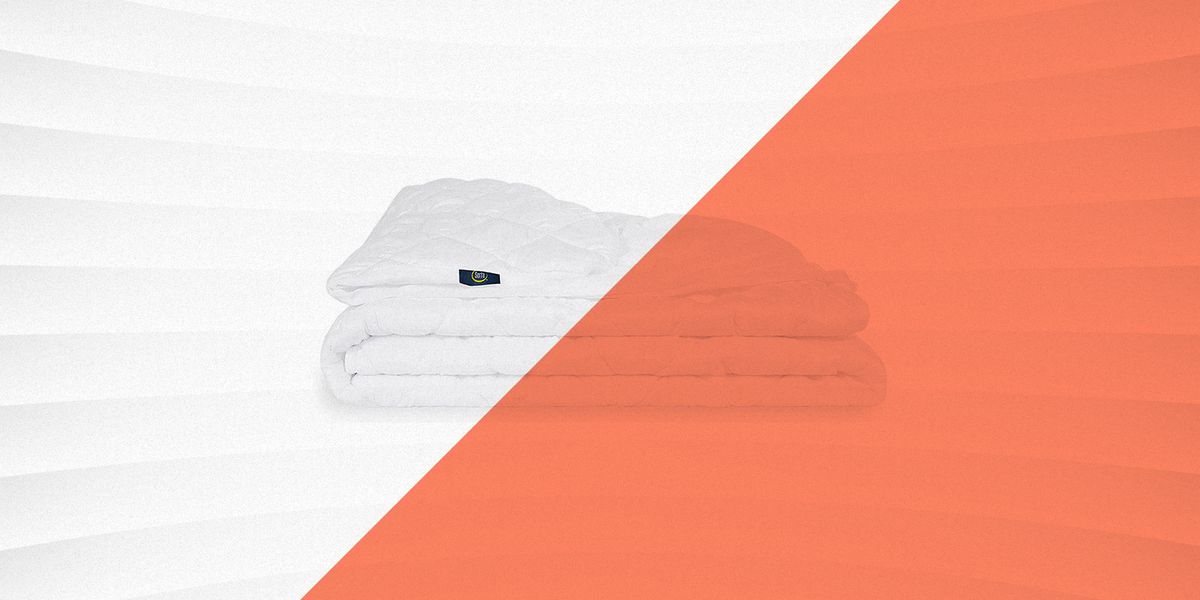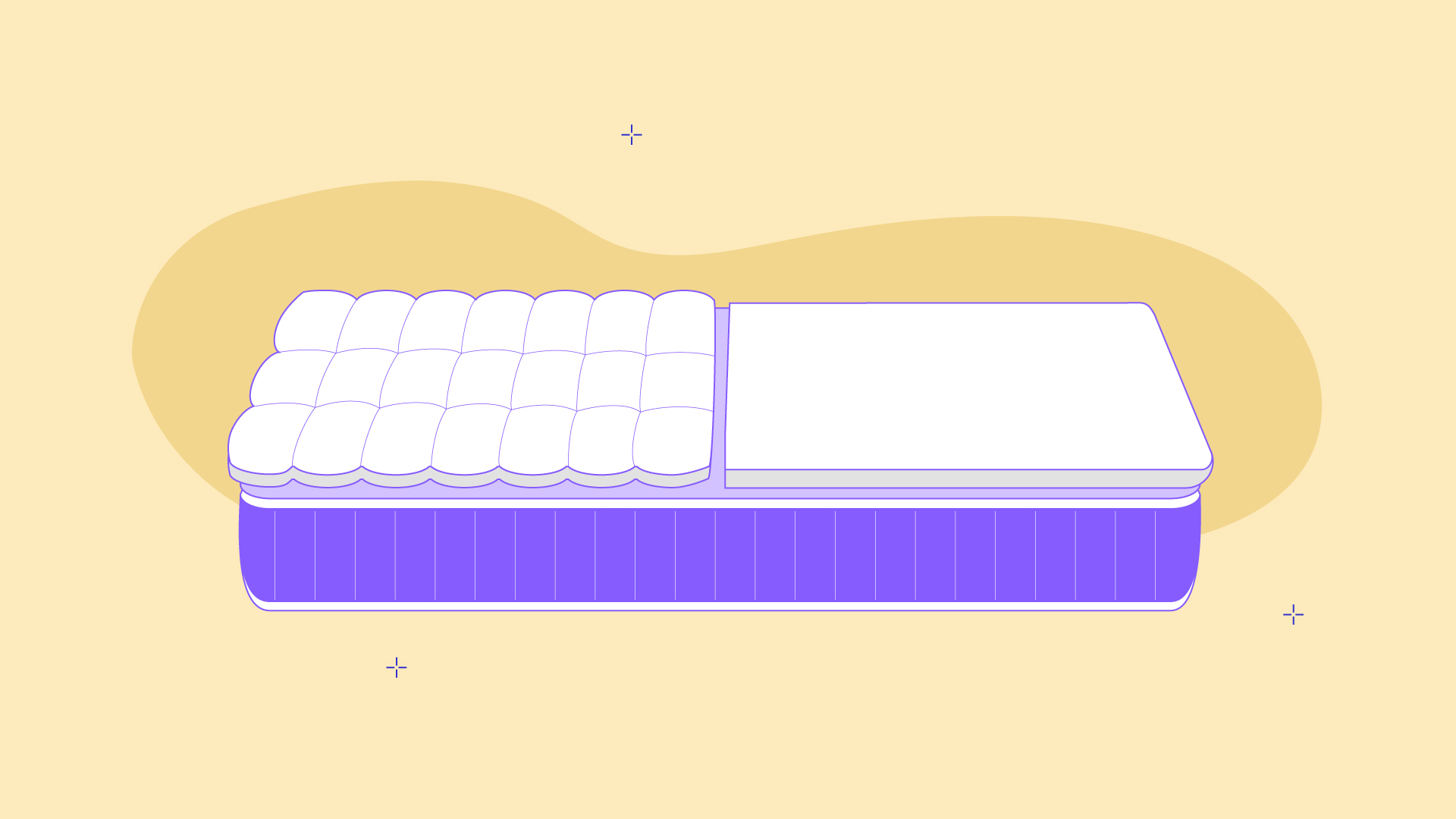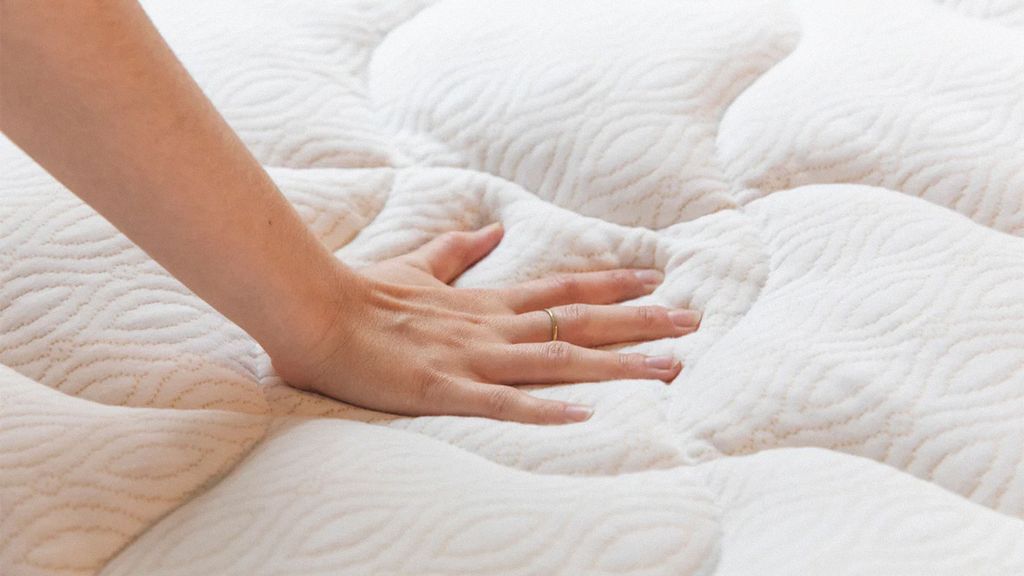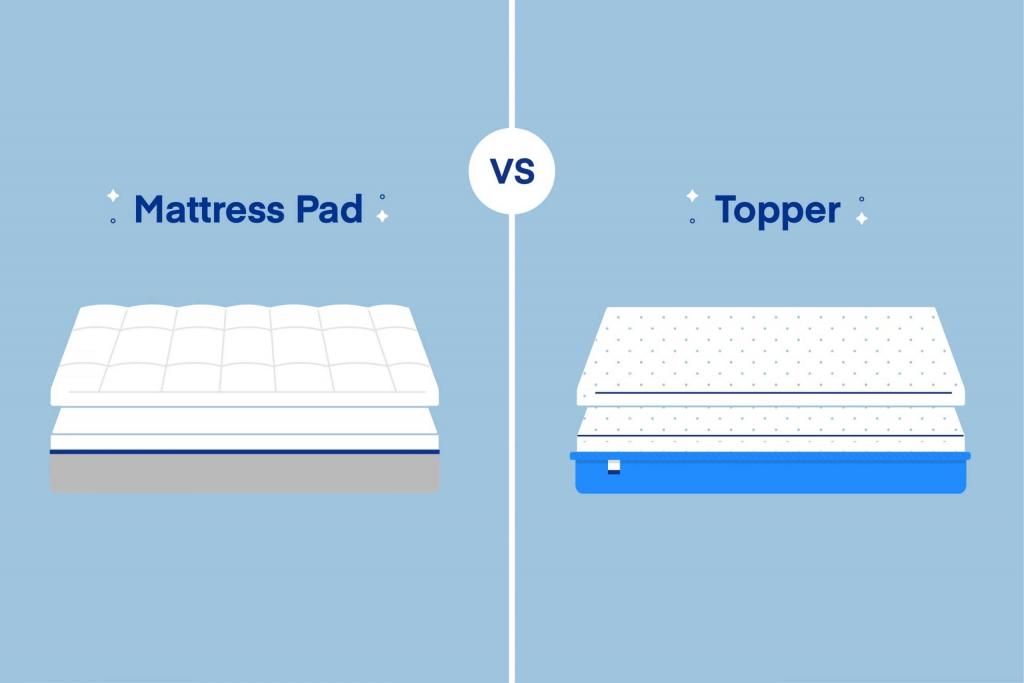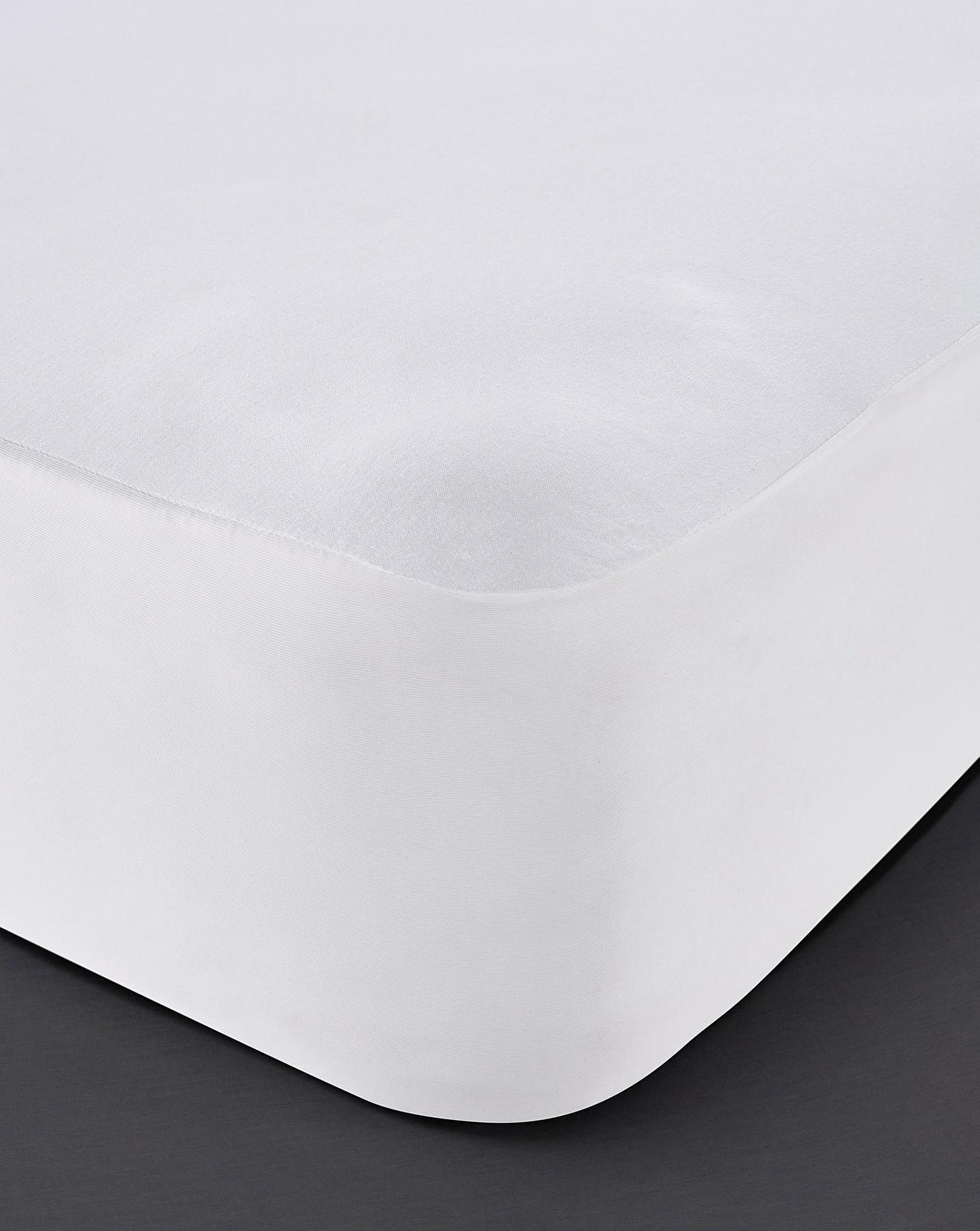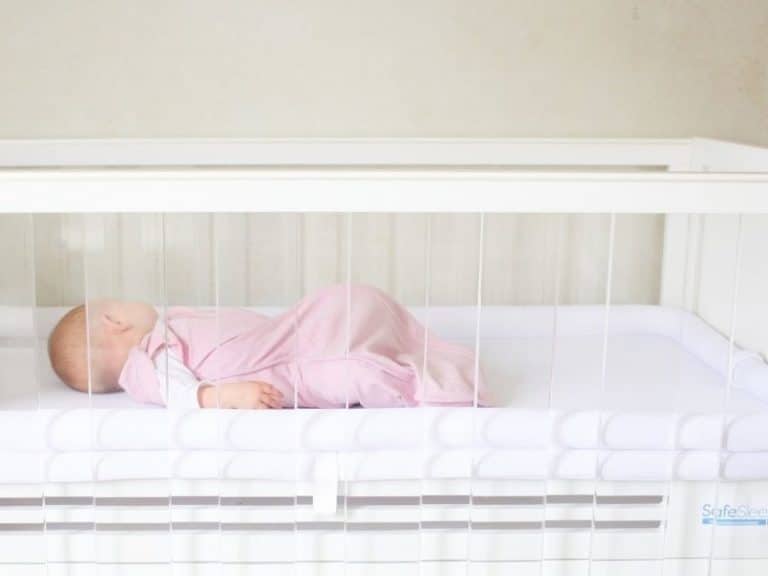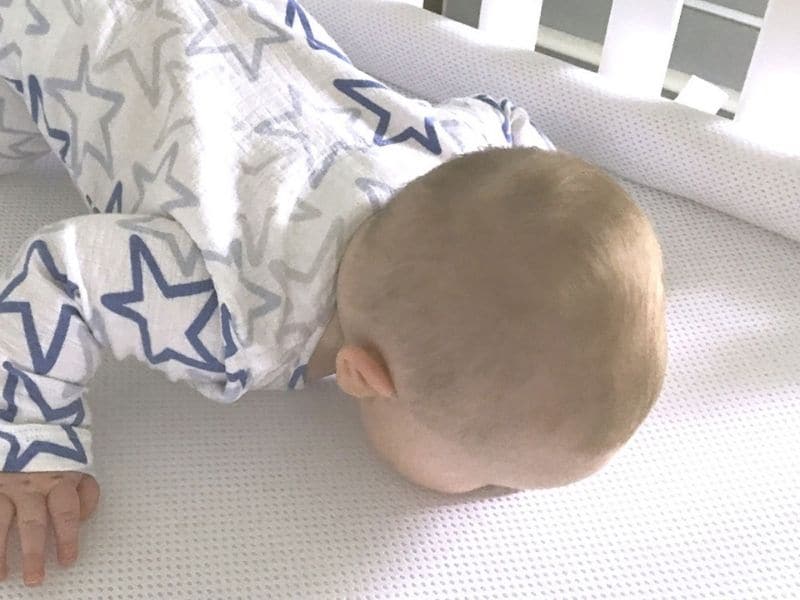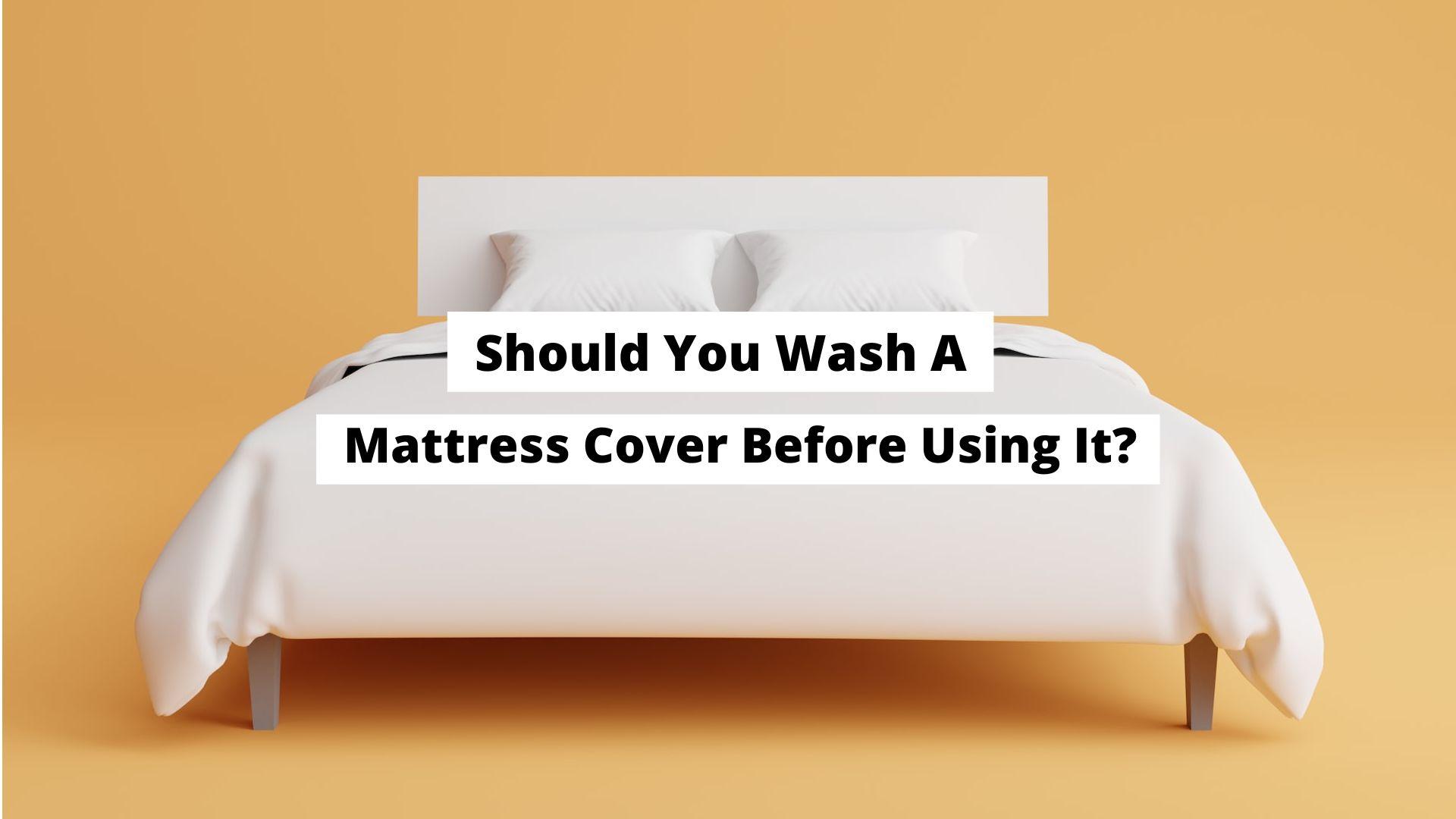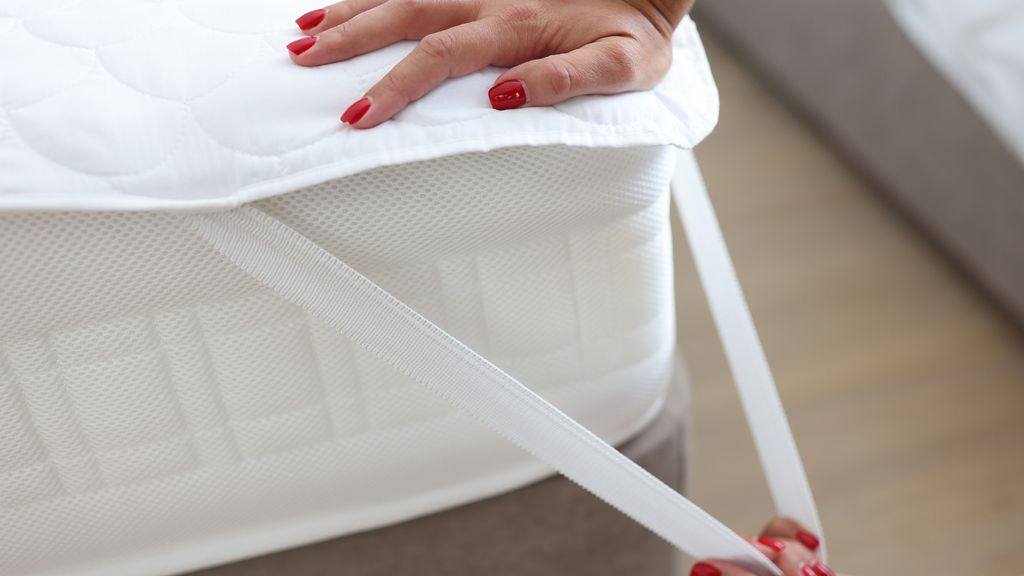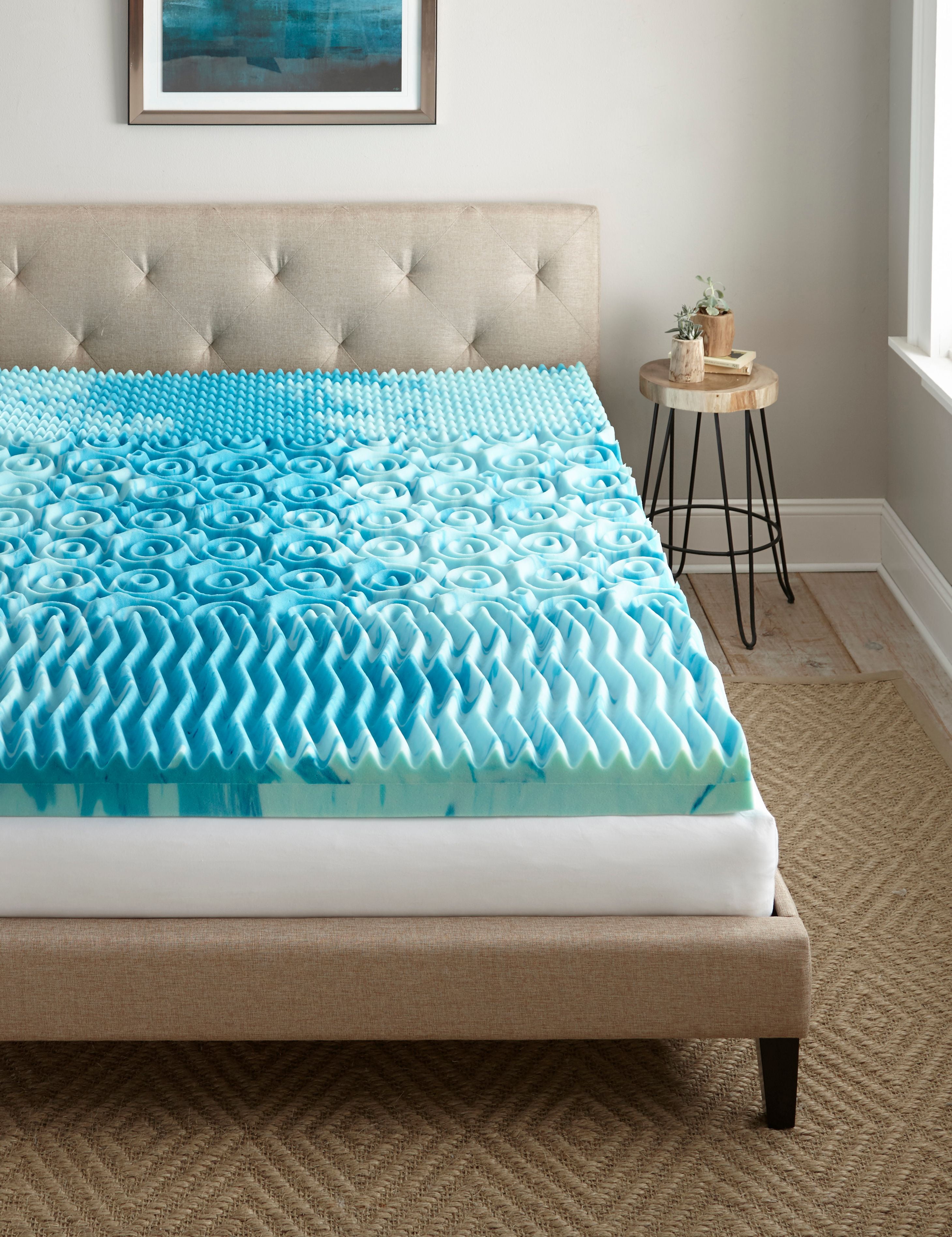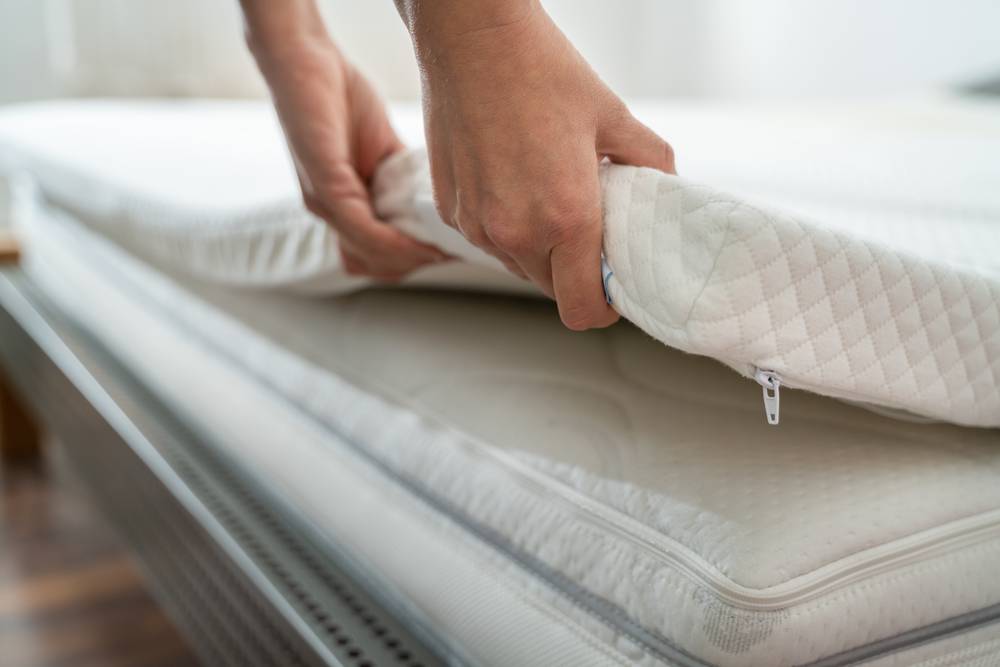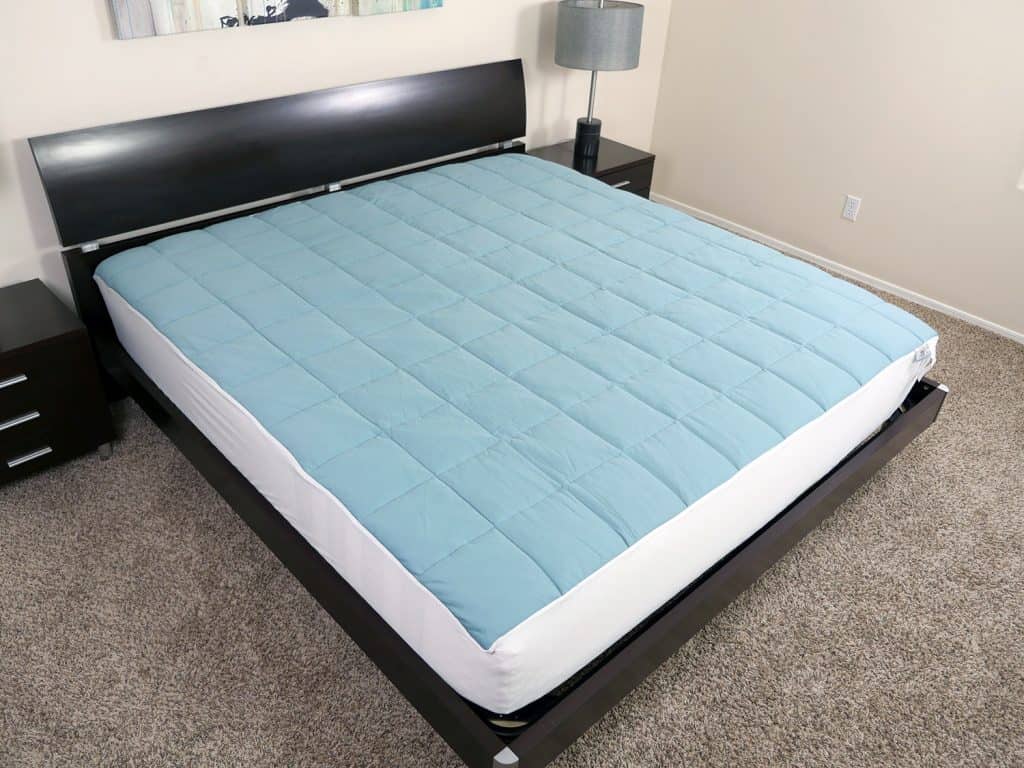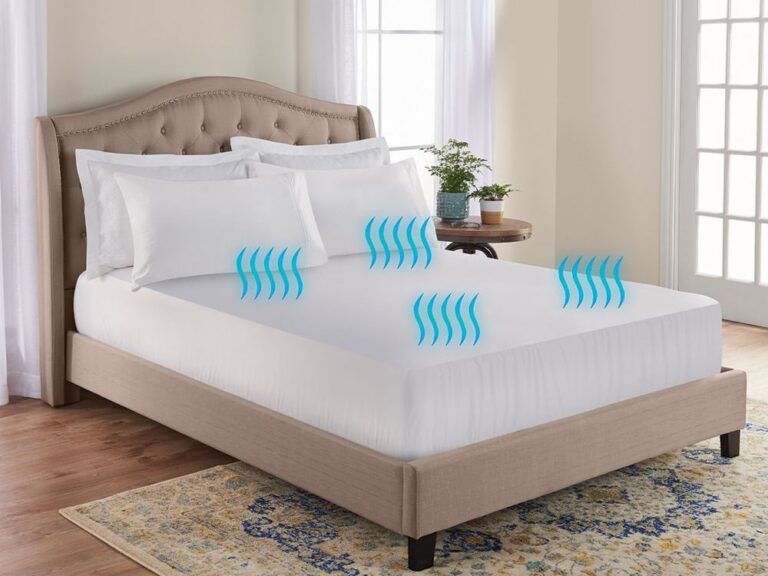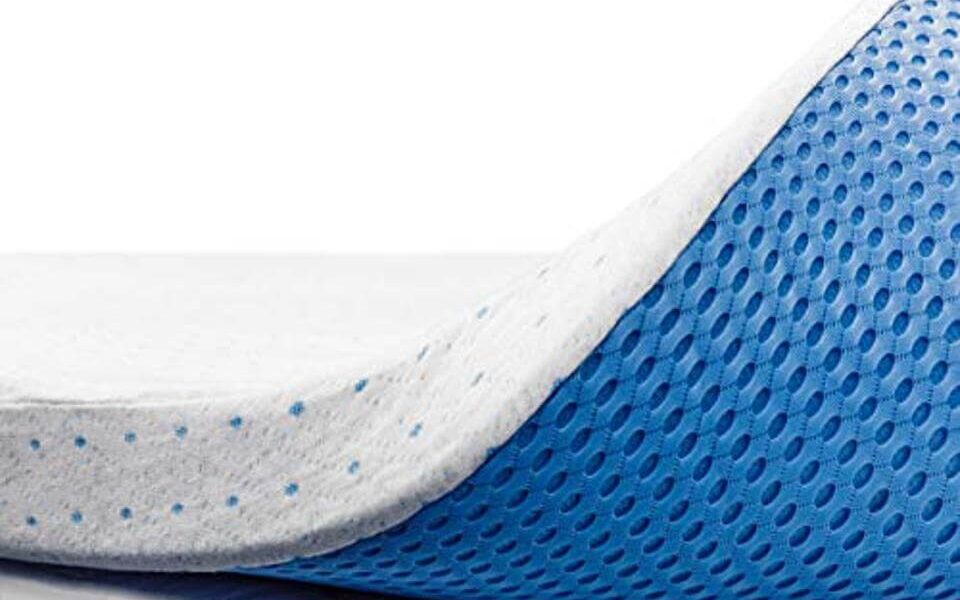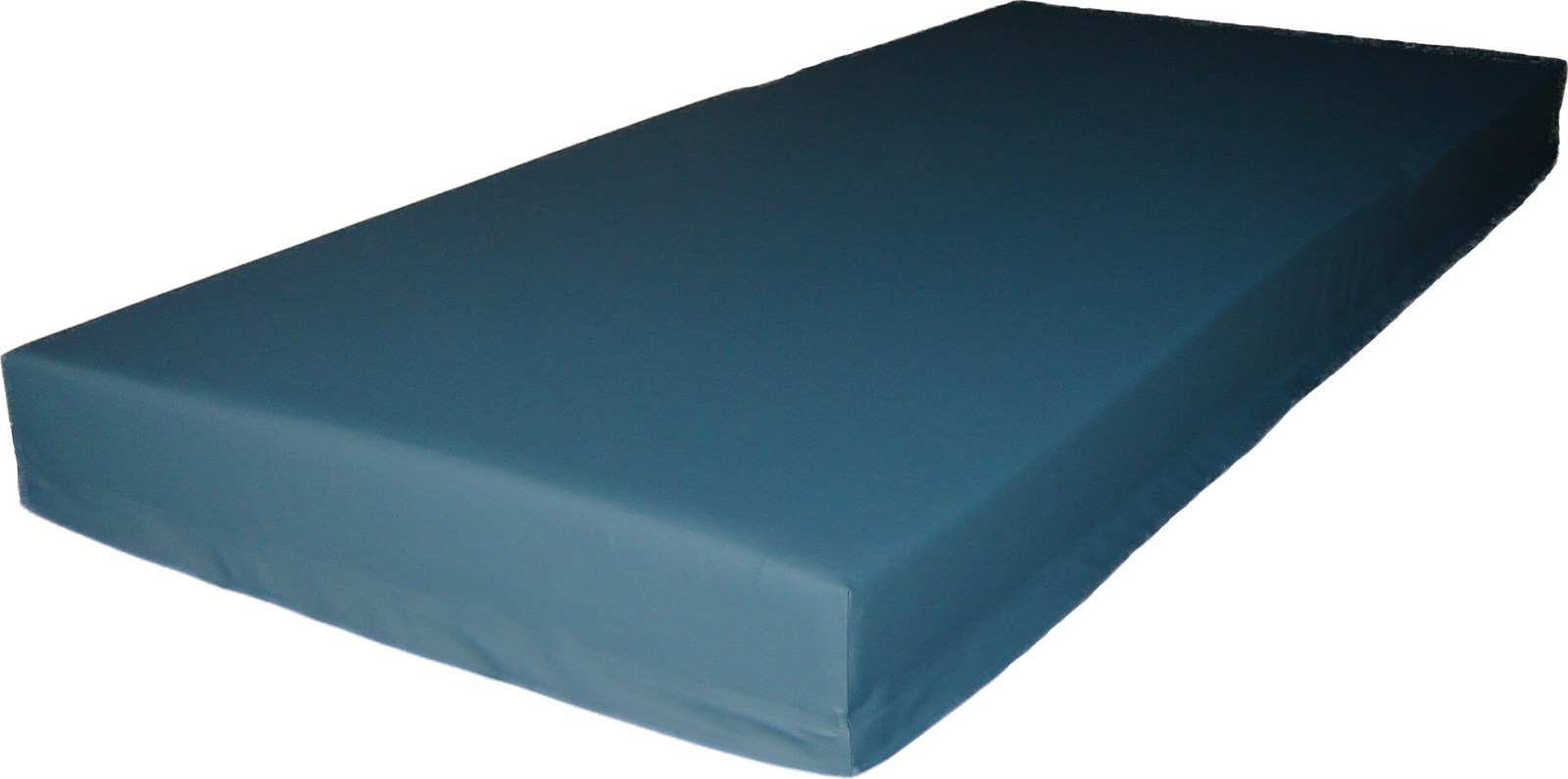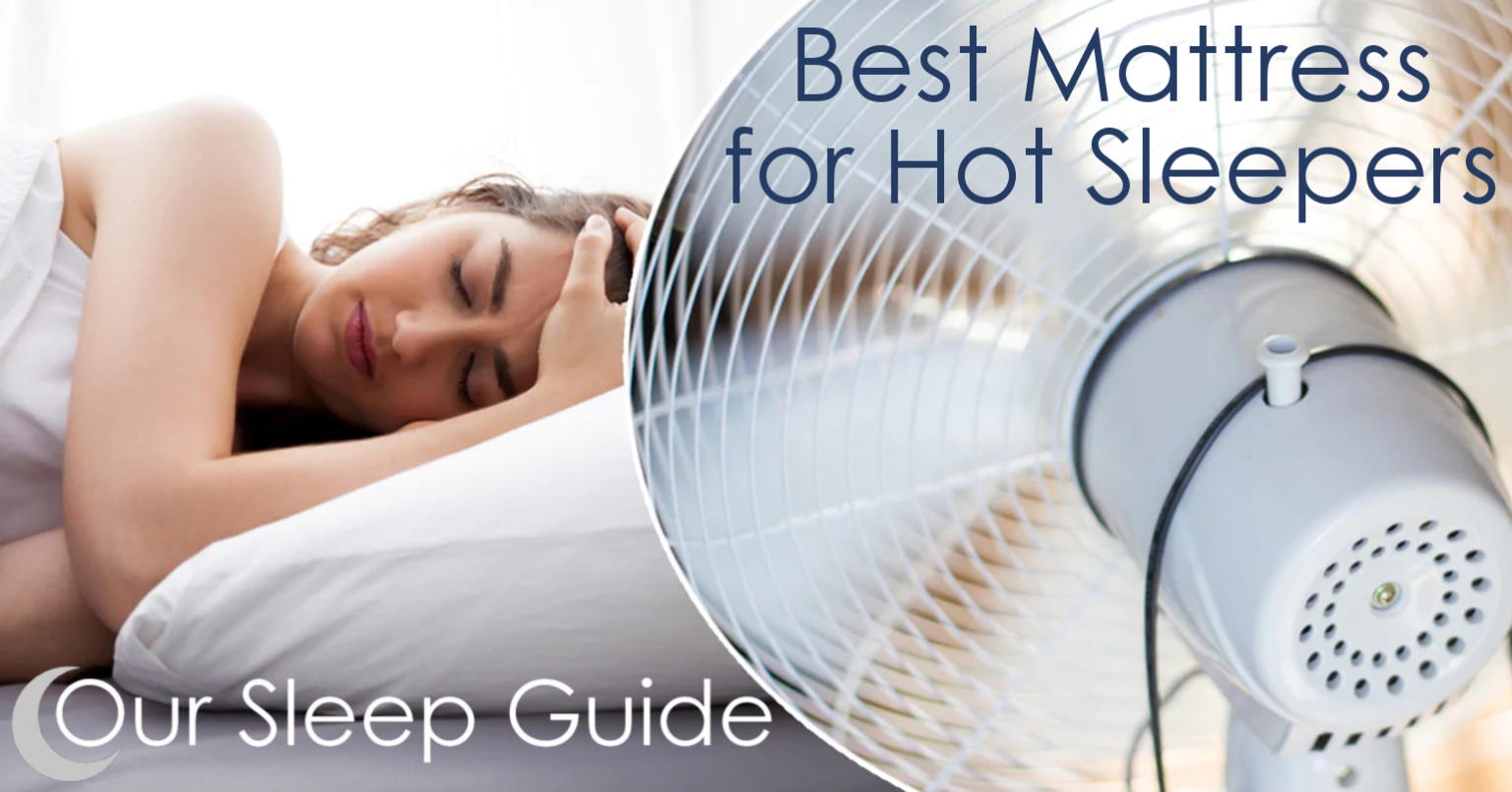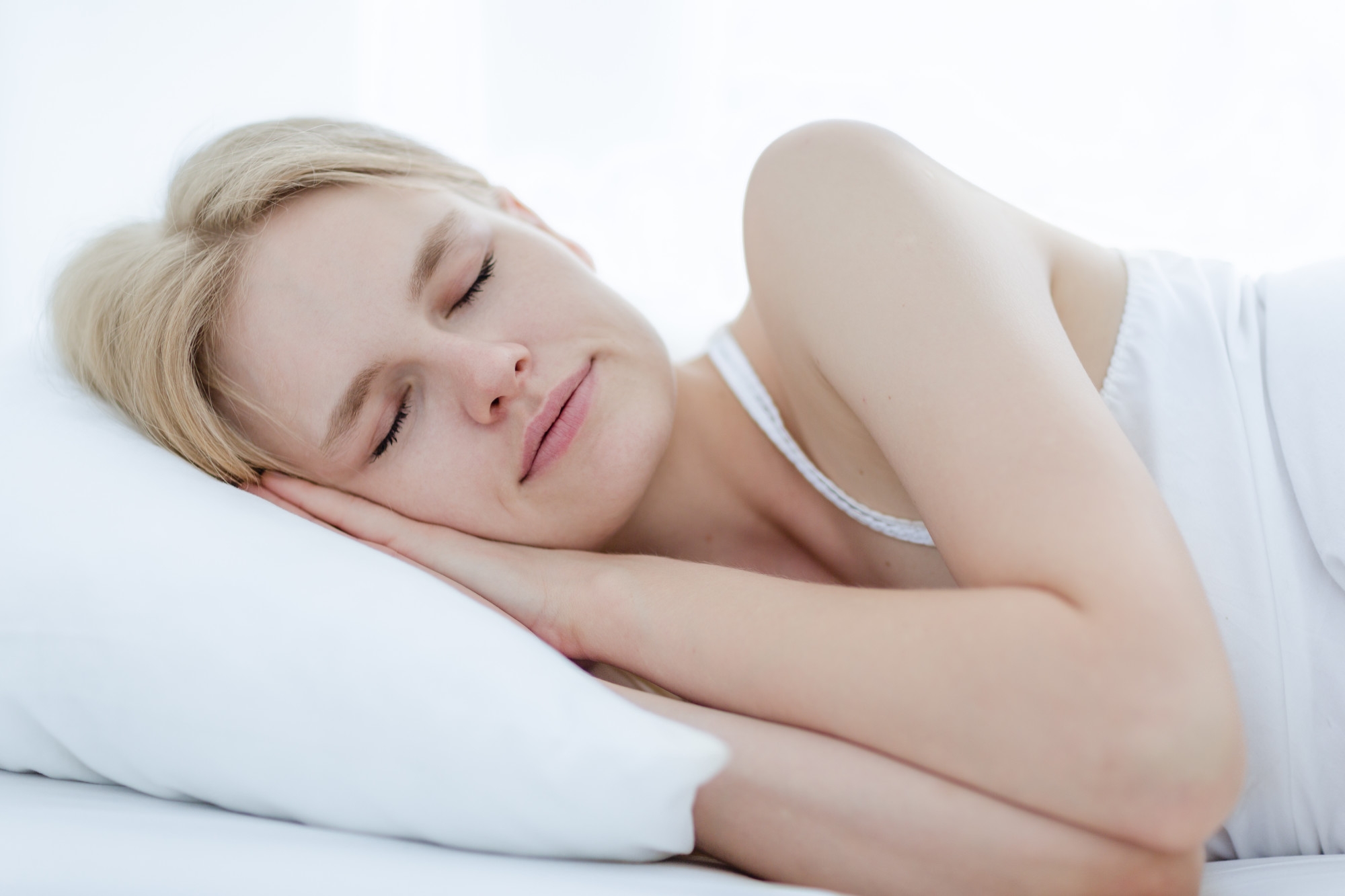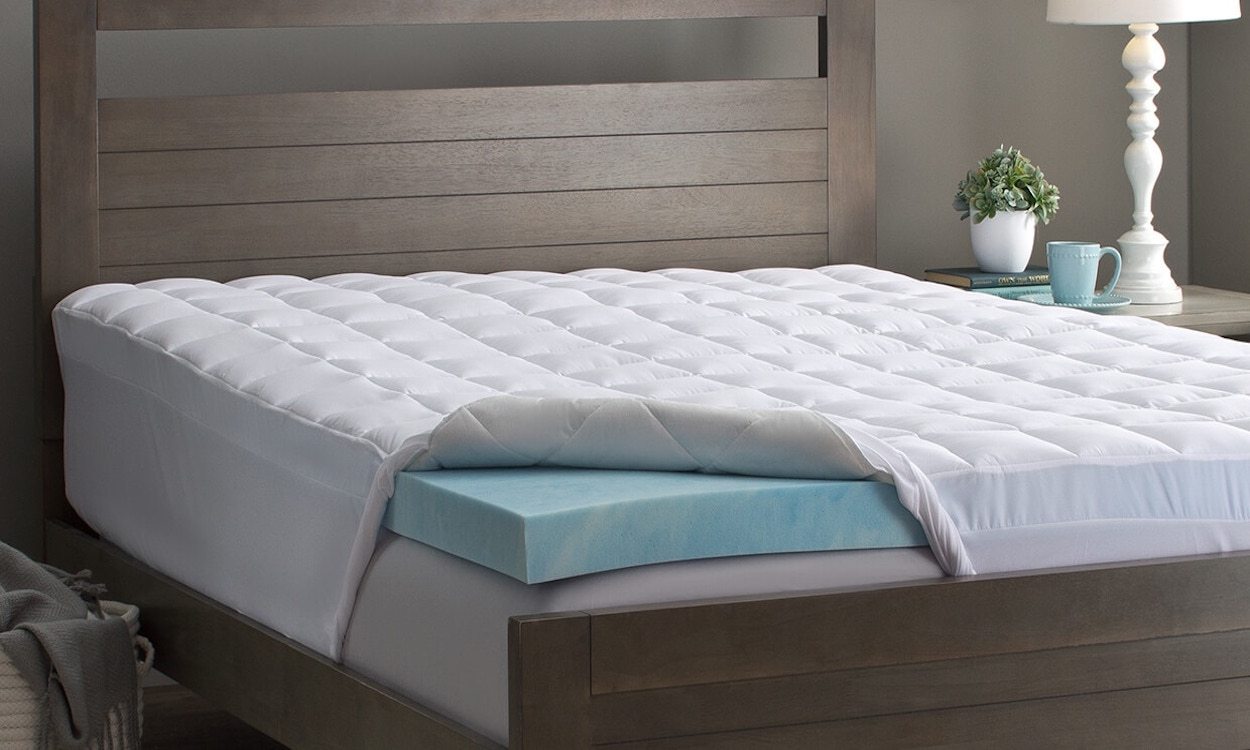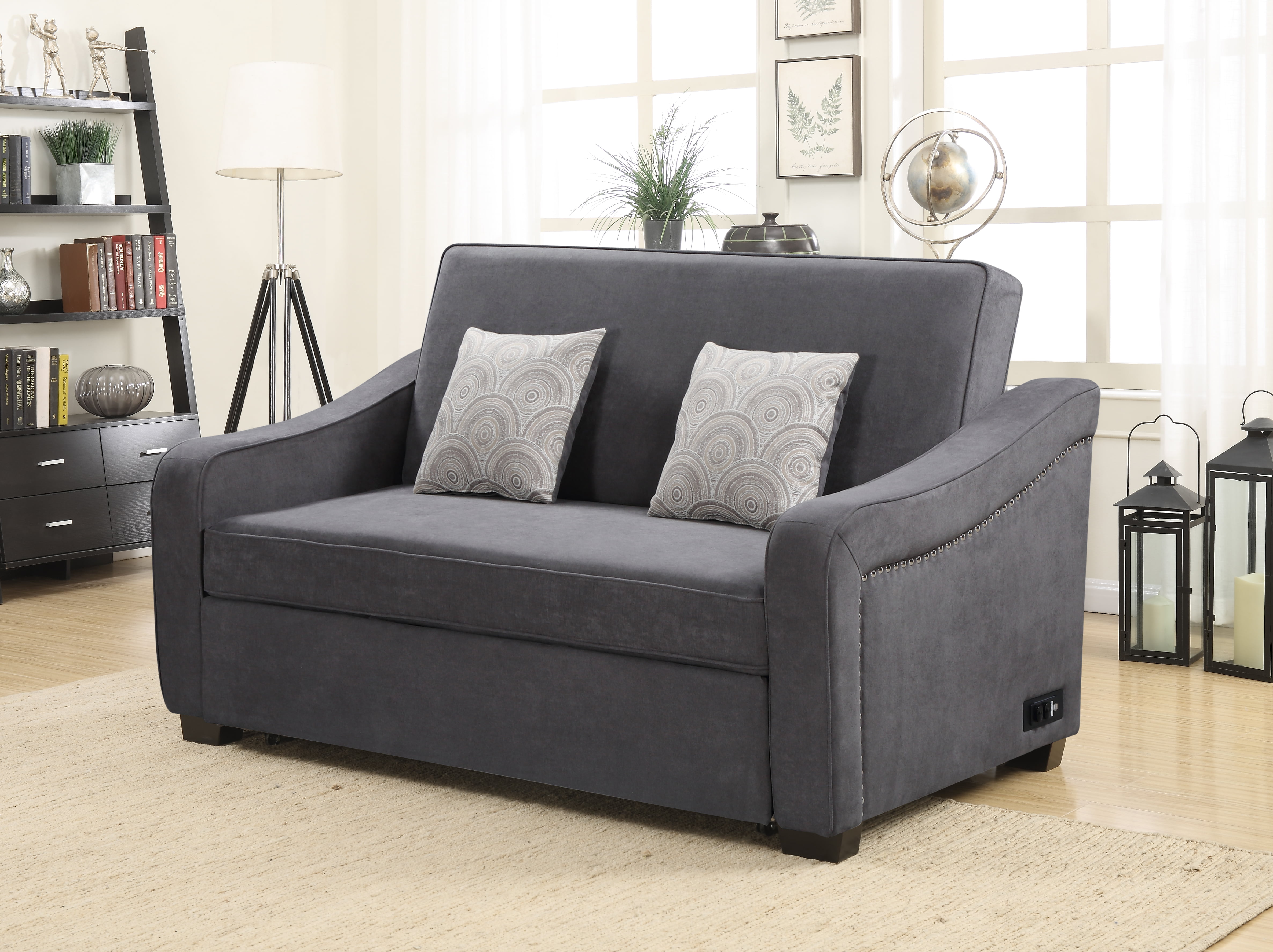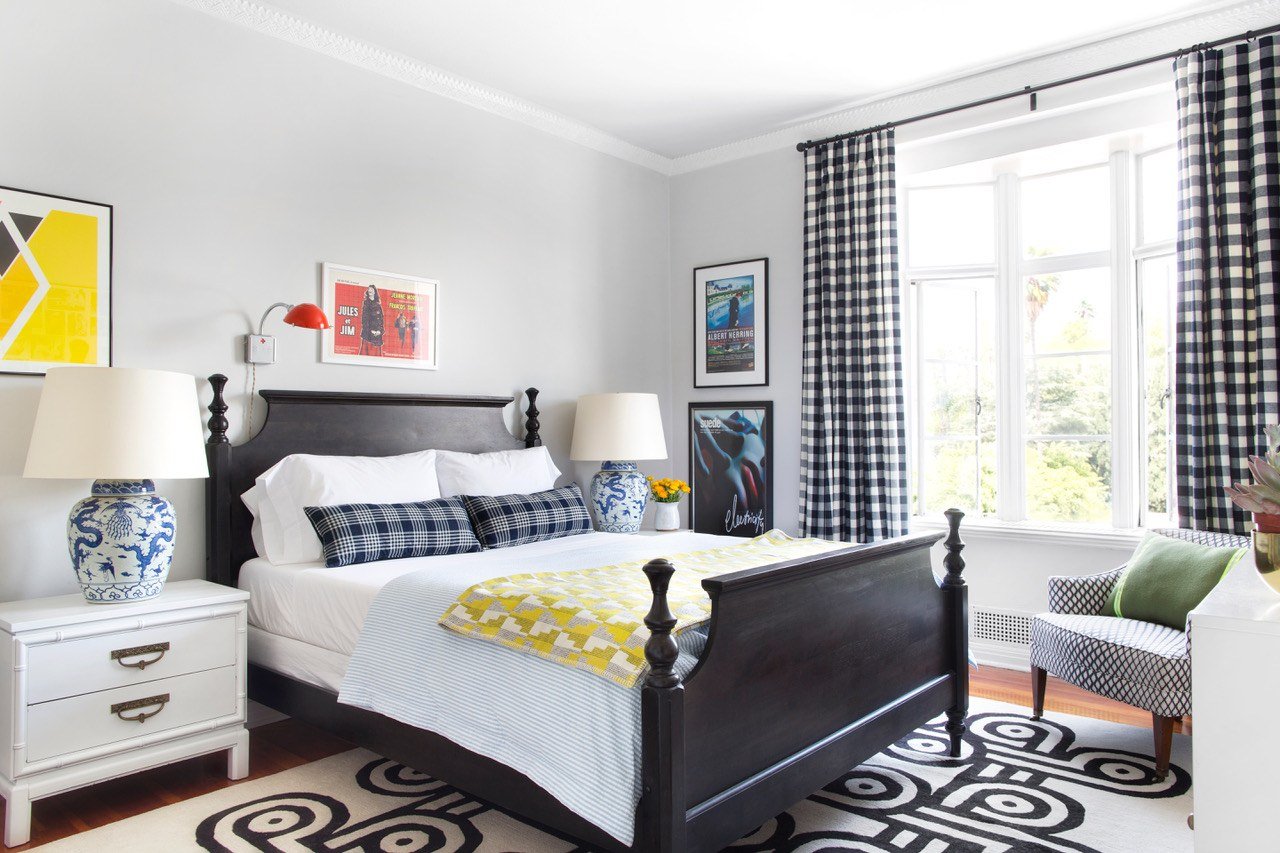One of the biggest concerns for people when choosing a mattress cover is whether or not it will make their bed feel hotter. After all, no one wants to wake up in the middle of the night drenched in sweat. So, does a mattress cover really make the bed hotter? The short answer is: it depends. It depends on the material and construction of the mattress cover, as well as your own personal preferences and body temperature. Let’s dive deeper into the truth about mattress covers and temperature regulation.1. "Does a Mattress Cover Make the Bed Hotter?"
Mattress covers are designed to protect your mattress and provide an extra layer of comfort. However, some materials and constructions can trap heat and make your bed feel warmer. This can be especially problematic for hot sleepers or those who live in warm climates. The key to finding a mattress cover that won’t make you sweat is to look for materials that are breathable and allow for proper air circulation. Materials like cotton, bamboo, and Tencel are known for their cooling properties and can help regulate your body temperature while you sleep.2. "The Truth About Mattress Covers and Temperature Regulation"
When shopping for a mattress cover, look for keywords like “breathable,” “moisture-wicking,” and “cooling” in the product description. These are indicators that the cover is designed to help regulate temperature and prevent overheating. You should also consider the construction of the mattress cover. Look for covers with a thin, lightweight design and minimal padding. Thick, fluffy covers may feel cozy at first, but they can trap heat and make your bed feel like a sauna.3. "How to Choose a Mattress Cover That Won't Make You Sweat"
So why do some mattress covers make your bed feel hotter? It all comes down to heat retention. Certain materials, like polyester or vinyl, can trap heat and prevent proper air circulation. This can cause your body heat to get trapped in the bed, making you feel uncomfortably warm. Additionally, some mattress covers have a “waterproof” or “water-resistant” layer, which can also contribute to heat retention. This layer is designed to protect your mattress from spills and accidents, but it can also prevent air from circulating and make your bed feel warmer.4. "The Science Behind Mattress Covers and Heat Retention"
If you’re a hot sleeper, you’ll want to look for a mattress cover specifically designed for temperature regulation. Some of the best options include: 1. Cotton mattress covers: Cotton is a natural, breathable material that allows for proper air circulation and can help keep you cool throughout the night. 2. Bamboo mattress covers: Similar to cotton, bamboo is also known for its cooling properties. It is also hypoallergenic and eco-friendly. 3. Tencel mattress covers: Tencel is a sustainable and moisture-wicking material that is gentle on the skin and can help regulate temperature. 4. Wool mattress covers: Wool is a naturally temperature-regulating material that can keep you cool in the summer and warm in the winter. 5. Latex mattress covers: Latex is a breathable and moisture-wicking material that can help prevent heat buildup in your bed.5. "Top 5 Cooling Mattress Covers for Hot Sleepers"
It’s important to note that mattress covers and mattress pads are not the same thing. Mattress covers are designed to protect your mattress and provide a barrier between you and the mattress, while mattress pads are meant to add an extra layer of cushion and comfort. If you’re primarily concerned about temperature control, a mattress cover is the better option. Mattress pads can add extra padding and make your bed feel warmer, while mattress covers with cooling properties can help regulate your body temperature and prevent overheating.6. "Mattress Covers vs. Mattress Pads: Which is Better for Temperature Control?"
In addition to preventing heat buildup, using a breathable mattress cover can offer numerous benefits for your sleep health. A cooler sleeping environment can lead to better quality sleep and improved overall well-being. Additionally, using a mattress cover can protect your mattress from stains, spills, and dust mites, which can extend the lifespan of your mattress and save you money in the long run.7. "The Benefits of Using a Breathable Mattress Cover"
Aside from choosing a cooling mattress cover, there are other ways to keep your bed cool and comfortable. One simple solution is to use a fan or air conditioner in your bedroom to circulate cool air. You can also try using thinner bedding and breathable fabrics, like cotton or linen, to prevent heat from getting trapped in your bed. And don’t forget to keep your bedroom at a comfortable temperature – around 65 degrees Fahrenheit is ideal for most people.8. "How to Keep Your Bed Cool with a Mattress Cover"
If you’re in the market for a cooling mattress cover, here are some of the best materials to look for: • Cotton: As mentioned earlier, cotton is a natural and breathable material that is great for regulating temperature. • Bamboo: Bamboo is also a highly breathable and moisture-wicking material that is gentle on the skin. • Tencel: Tencel is a sustainable and eco-friendly material that is known for its cooling and moisture-wicking properties. • Wool: Wool is a natural temperature-regulating material that can keep you cool in warm weather and warm in cool weather. • Latex: Latex is a breathable and moisture-wicking material that can help prevent heat buildup in your bed.9. "The Best Materials for a Cooling Mattress Cover"
When shopping for a mattress cover, keep these tips in mind to ensure you choose the right one for your needs: • Look for cooling properties: As a hot sleeper, you’ll want to prioritize finding a cover with cooling properties and materials that allow for proper air circulation. • Consider your personal preferences: Some people naturally sleep warmer than others, so consider your own body temperature when choosing a mattress cover. • Read reviews: Before making a purchase, be sure to read reviews from other hot sleepers to see if the mattress cover truly lives up to its claims of temperature regulation. • Don’t overlook the construction: A thin, lightweight design with minimal padding is key for a cooling mattress cover. In conclusion, a mattress cover can make your bed feel hotter, but it doesn’t have to. By choosing the right materials and construction, you can find a mattress cover that helps regulate your body temperature and allows for a comfortable and cool night’s sleep.10. "Tips for Choosing the Right Mattress Cover for Hot Sleepers"
Do Mattress Covers Actually Make the Bed Hotter?

Understanding the Purpose of a Mattress Cover
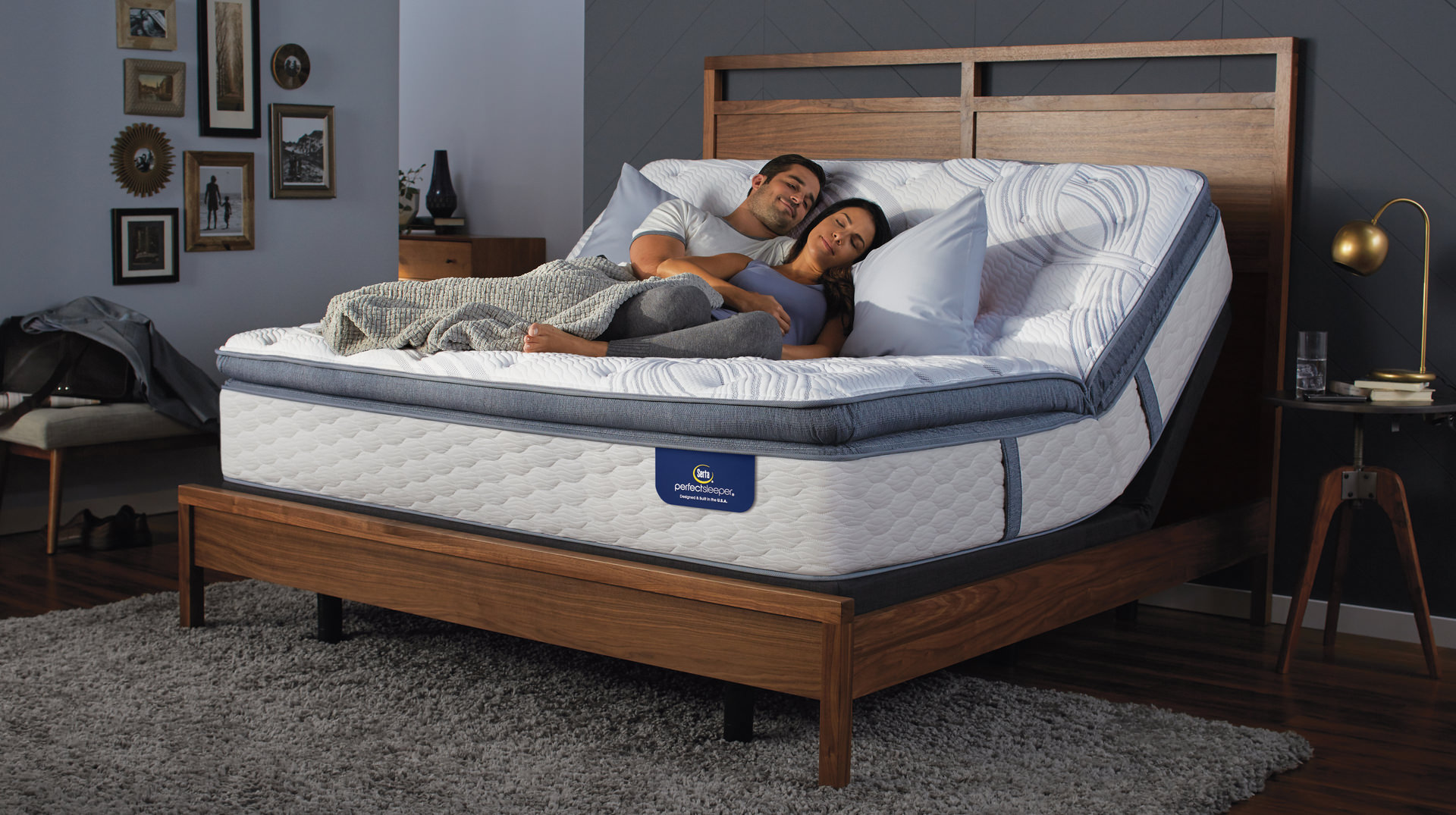 When it comes to designing a comfortable and cozy bedroom, many people overlook the importance of a mattress cover.
Mattress covers
serve several purposes, including protecting the mattress from stains, spills, and wear and tear, as well as providing an extra layer of cushioning and support. However, one concern that often arises when considering a mattress cover is whether it will make the bed hotter. After all, no one wants to spend their nights tossing and turning in a sweaty and uncomfortable bed. So, let's explore this popular question and find out the truth.
When it comes to designing a comfortable and cozy bedroom, many people overlook the importance of a mattress cover.
Mattress covers
serve several purposes, including protecting the mattress from stains, spills, and wear and tear, as well as providing an extra layer of cushioning and support. However, one concern that often arises when considering a mattress cover is whether it will make the bed hotter. After all, no one wants to spend their nights tossing and turning in a sweaty and uncomfortable bed. So, let's explore this popular question and find out the truth.
The Truth About Mattress Covers and Heat
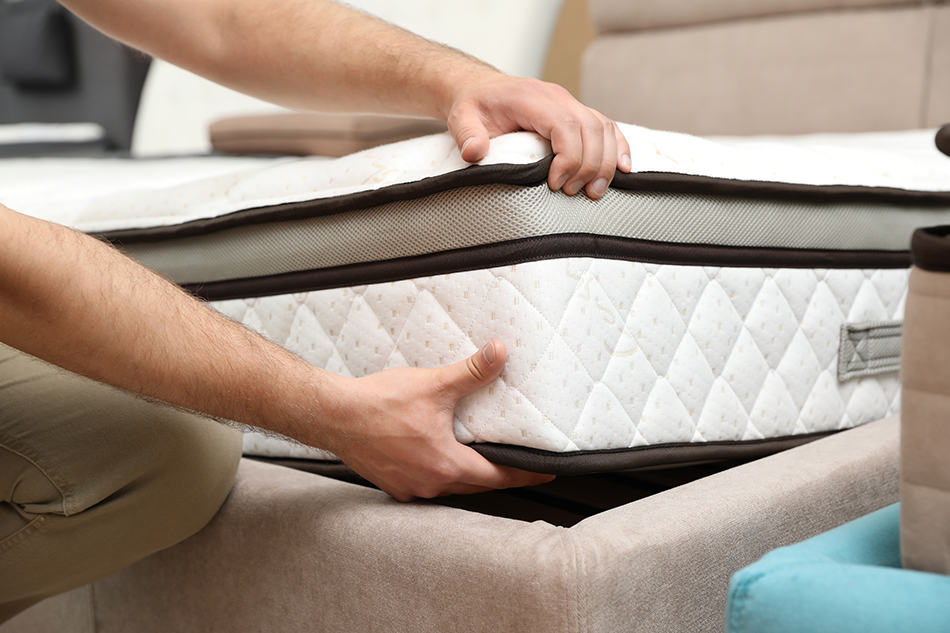 There is a common misconception that mattress covers make the bed hotter, but this is not always the case.
The truth is,
a mattress cover can actually help regulate the temperature of your bed.
This is especially true for mattresses made with memory foam, which tends to retain heat and can cause discomfort for some sleepers. By adding a mattress cover, you are creating an extra layer between yourself and the mattress, allowing for better airflow and temperature regulation.
There is a common misconception that mattress covers make the bed hotter, but this is not always the case.
The truth is,
a mattress cover can actually help regulate the temperature of your bed.
This is especially true for mattresses made with memory foam, which tends to retain heat and can cause discomfort for some sleepers. By adding a mattress cover, you are creating an extra layer between yourself and the mattress, allowing for better airflow and temperature regulation.
Factors That May Contribute to a Hot Bed
 While a mattress cover itself may not make the bed hotter, there are other factors that can contribute to a hot and uncomfortable sleeping experience.
One of the main culprits is the material of the mattress cover.
Some materials, such as polyester, can trap heat and cause discomfort. It is important to
choose a mattress cover made of breathable and lightweight materials
such as cotton or bamboo, which can help keep you cool throughout the night.
Another factor to consider is the type of mattress you have. As mentioned earlier, memory foam mattresses tend to retain heat, so adding a mattress cover may not make much of a difference. However, if you have a traditional innerspring mattress, adding a mattress cover can actually help regulate the temperature and create a more comfortable sleeping environment.
While a mattress cover itself may not make the bed hotter, there are other factors that can contribute to a hot and uncomfortable sleeping experience.
One of the main culprits is the material of the mattress cover.
Some materials, such as polyester, can trap heat and cause discomfort. It is important to
choose a mattress cover made of breathable and lightweight materials
such as cotton or bamboo, which can help keep you cool throughout the night.
Another factor to consider is the type of mattress you have. As mentioned earlier, memory foam mattresses tend to retain heat, so adding a mattress cover may not make much of a difference. However, if you have a traditional innerspring mattress, adding a mattress cover can actually help regulate the temperature and create a more comfortable sleeping environment.
Final Thoughts
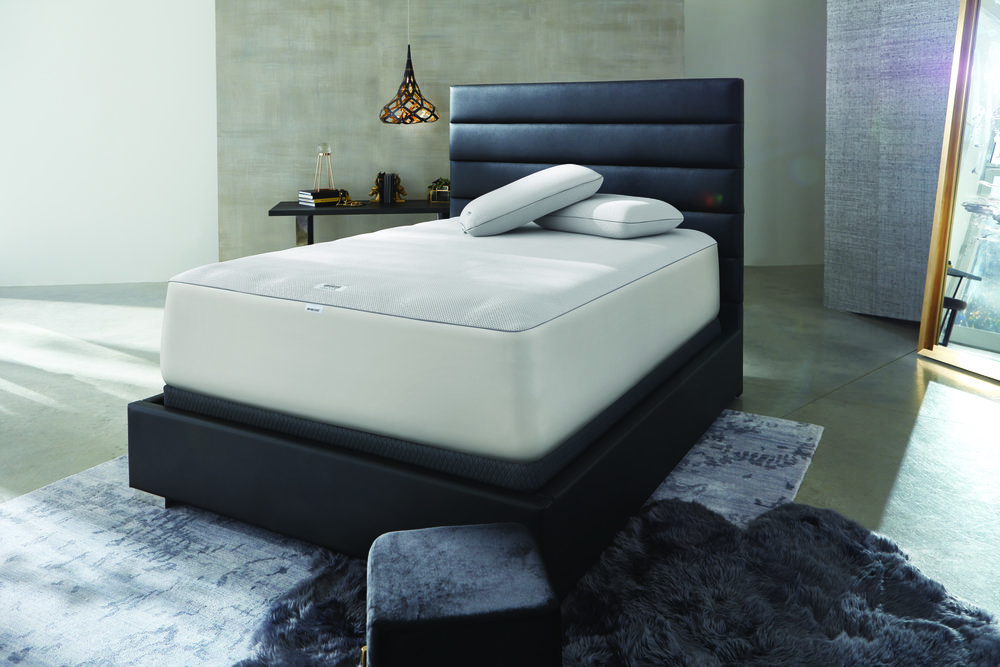 In conclusion,
a mattress cover does not necessarily make the bed hotter, but it can actually help regulate the temperature and create a more comfortable sleeping experience.
When choosing a mattress cover, it is important to consider the materials and type of mattress you have, as well as your personal preferences. With the right mattress cover, you can protect your mattress, add an extra layer of comfort, and ensure a cool and restful night's sleep. So, go ahead and invest in a quality mattress cover – your bed (and body) will thank you.
In conclusion,
a mattress cover does not necessarily make the bed hotter, but it can actually help regulate the temperature and create a more comfortable sleeping experience.
When choosing a mattress cover, it is important to consider the materials and type of mattress you have, as well as your personal preferences. With the right mattress cover, you can protect your mattress, add an extra layer of comfort, and ensure a cool and restful night's sleep. So, go ahead and invest in a quality mattress cover – your bed (and body) will thank you.
